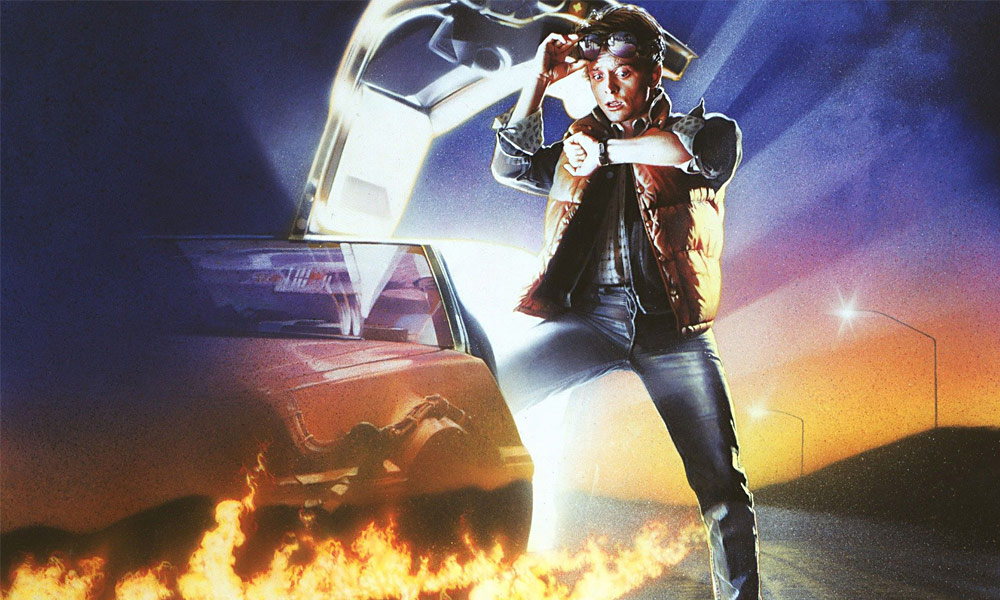You might remember a video from last year that called Marvel out for its bland original soundtracks. It was a great video and really got us thinking about the movies with great scores. They draw us into the movie, turning what could be a simple piece of entertainment into a cultural touchstone that defines genres, filmmakers, composers, and sometimes even whole decades, like what the Terminator series did for the ’80s and ’90s. For us, these are the scores we keep coming back to, humming in the shower, listening to when we need to focus, or playing when we need a pick-me-up.
The Bourne Identity
John Powell
Including Jason Bourne and not James Bond on this list isn’t some secret declaration of where our ultimate espionage loyalties lie. We can like both. But we can also recognize that where James Bond’s theme makes us want to sit down for a 007 marathon, The Bourne Identity and its music make us want to actually become Jason Bourne. Each and every song does an amazing job of conveying the emotion, tension, and covert nature of Bourne’s life and struggle with the CIA. The score flows from investigation to heart pounding action to melancholic loneliness and does it so well you can put Bourne’s story together only hearing the music.
The Indiana Jones Trilogy
John Williams
No movie theme song does a better job of conveying what kind of movie you’re about to watch than that of the Indiana Jones series. John Williams is obviously good at his job, but this theme song, and, by extension, the whole score, put you in the perfect Indiana Jones mood. As soon as you hear the first few measures, you’re ready for globetrotting adventures. We’d go so far as to say no other score has produced such an iconic, catchy, inspirational theme. Star Wars is the only one that comes close, but we don’t find ourselves humming the Imperial March nearly as often as Dr. Jones’s archaeological excursion soundtrack. It reminds us that adventure movies don’t have to be convoluted messes of intrigue or conspiracies. Sometimes it can just be one charismatic, intelligent good guy fighting his way through world history.
The Lord of the Rings Trilogy
Howard Shore
Two kinds of nerds love Peter Jackson’s Lord of the Rings (not that we’re judging, we love the trilogy too). Fantasy nerds finally got to see the original piece of influential fantasy come to life in a way people previously thought impossible, while music nerds drool over the power of a deeply effective orchestral score. For both, it’s easy to see why. This is a story on a scale that can only be described as epic. Huge battles between good and evil and deep-seated personal conflict both decide the fate of the world, all with an emotional, distinct, immediately recognizable score. This is the kind of music that if we ever heard it playing in real life, we’d know something amazing was about to happen.
Tron: Legacy
Daft Punk
Regardless of your feelings on Tron: Legacy, you have to admit Daft Punk rocked the hell out of the soundtrack. The duo is absolutely the only group who could have made a soundtrack to fit the setting of the reboot and they nailed it. The soundtrack isn’t as lively as their usual music, but they had to adapt to help tell the story, which included a few slower, more intimate scenes. They proved they were up for the job though, injecting heartfelt emotion into their techno, emphasizing how personal a story Tron: Legacy ended up being. Whether or not you liked the movie, there’s no question we got a great Daft Punk album out of the whole thing.
Ocean’s Eleven
David Holmes
Above everything else, Ocean’s Eleven is a slick movie. Fast-talking guys pull a heist at a high class Vegas casino, all in sharp suits, dark sunglasses, nice cars, and at least three of them look like George Clooney, Brad Pitt, or Matt Damon. That slick, cool lifestyle had to come across in the score, and David Holmes delivered. Now, whenever we find ourselves in Vegas (or similar locales), we’ll find ourselves humming snippets of the soundtrack, and that’s if we forgot headphones to actually play the music. Most heists in the real world probably don’t feature people who look or act like this, but we’re going to keep living in our voluntary fantasy world on this one.
Saving Private Ryan
John Williams
No score has ever defined a genre the way Saving Private Ryan changed the way we listen to World War II. Almost every movie, game, short film, play, or documentary about World War II has a soundtrack that sounds like John Williams should be suing everyone for plagiarism. Band of Brothers has a theme that could have easily been played over any sweeping shot in Saving Private Ryan. Medal of Honor put iconic moments from Saving Private Ryan into the gameplay and built a chilling opening around beats William established. The Company of Heroes main menu sounds like you’re choosing between Band of Brothers, Saving Private Ryan, and actually enlisting in the US Army circa 1944. Even Marvel’s getting in on the action with Captain America’s closing credits, albeit a bit happier than the other movies and games.
The Back to the Future Trilogy
Alan Silvestri
We’re starting to think the ’80s were a great time for film scores. Every movie from the time has a score that most people can place within seconds, which is a huge mark of a job well done for those composers. The score of Back to the Future stands out because it perfectly captures the fun of sci-fi at a time when sci-fi was still trying to find its cinematic legs. Not many films in the genre had found a wide audience, so when Back to the Future did, it meant a lot of other sci-fi was going to start taking musical cues from it. There’s urgency and anxiety in the music, but all in ways that remind us this is supposed to be a fun movie, so don’t take any of it too much to heart. Everything’s going to work out fine in the end.
Swiss Army Man
Manchester Orchestra
This is definitely the least straightforward or traditional entry on the list, but Swiss Army Man is the least straightforward or traditional movie we’ve seen in a very long time. The music depends heavily on human voices to make it work, but it’s not quite a capella. It’s more an orchestral band that’s had half its performers replaced with vocal chords. Musical instruments still factor in, but they’re used more to support the singers than they are any sort of focal point. It makes for a distinct soundtrack with an unlikely origin story, as well as a compelling reason to seek this movie out, as if you needed another.
Pirates of the Caribbean: Curse of the Black Pearl
Klaus Badelt
The only reason we don’t buy a boat any time we hear the Pirate of the Caribbean theme play, is because we can only consistently afford a canoe and no one needs nine hundred canoes. They also don’t really make ships like the Black Pearl anymore, so we’d only be compromising our nautical wishes and there’s not much of a point to that. Real world captains aren’t like Jack Sparrow either. Most of them just get drunk and crash oil tankers, so our time would be less swashbuckling and more Exxon Valdezing. We’d be better off filling up an outdoor pool and playing make believe with this soundtrack playing in the background. Which, come to think of it, isn’t a half bad idea.
Braveheart
James Horner
For all we know about medieval Scottish history, the musical stylings here might be as anachronistic as the warriors kilts, but that doesn’t make it any less awesome (just like the kilts). And we’re not born and bred warriors, but it’s hard not to imagine yourself as one with the score of Braveheart playing. Really, it doesn’t matter who you are, if you don’t imagine yourself running along the peaks of the Scottish highlands during the upbeat sections of this soundtrack, you probably haven’t seen the movie yet. This is also the best a bagpipe has ever sounded, so any pipe enthusiast owes James Horner a debt of gratitude.




